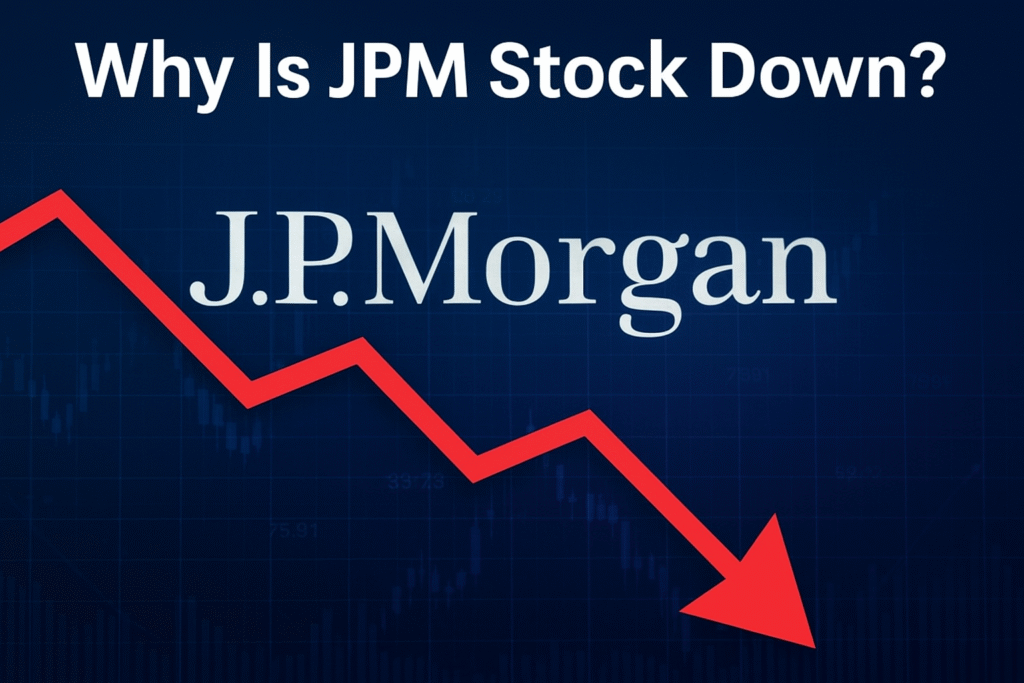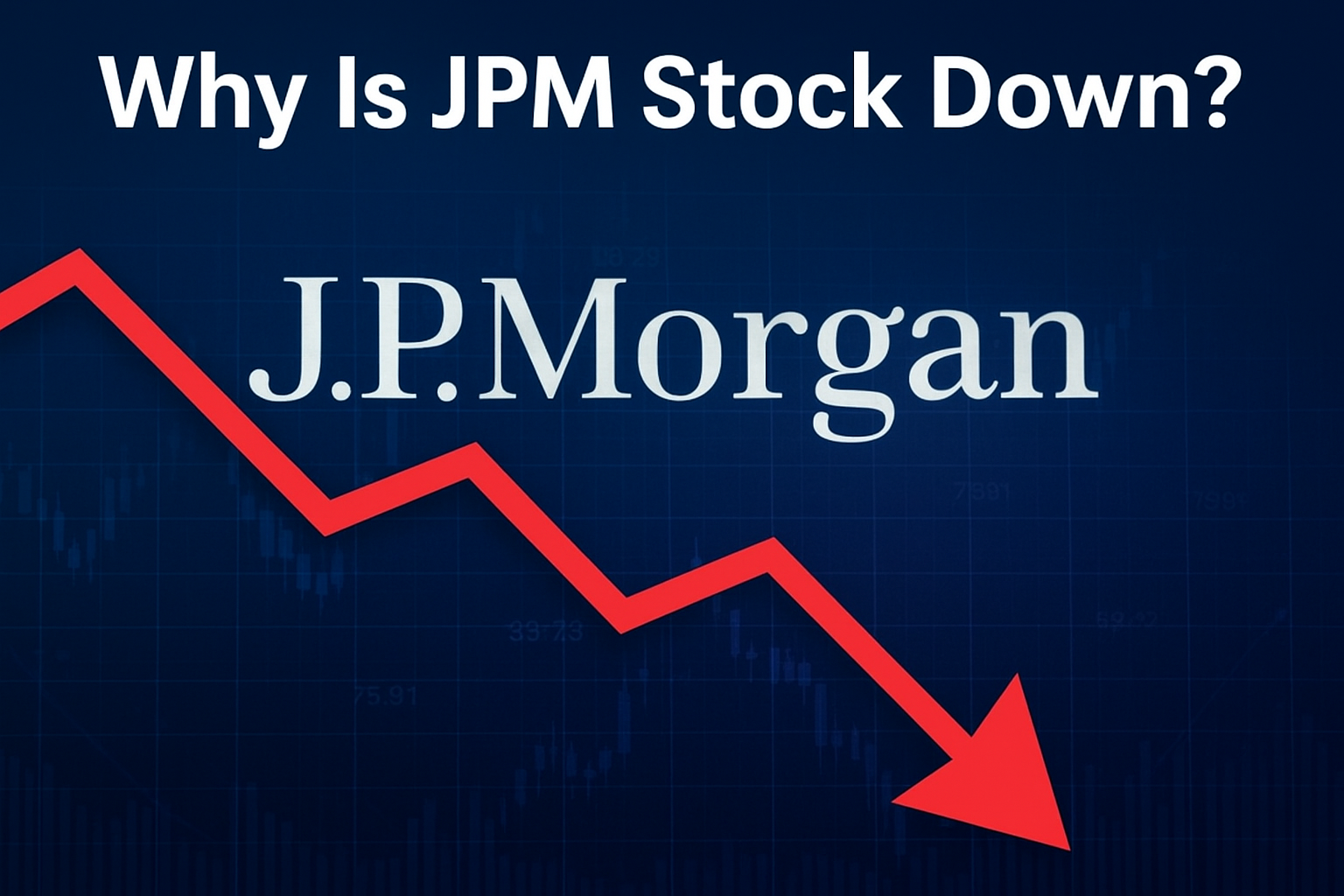
Why Is JPM Stock Down Today?
JPMorgan Chase & Co. (NYSE: JPM) has been making headlines recently, but not for its earnings. Investors are scratching their heads as the bank’s stock has taken a bit of a dip. While JPMorgan remains one of the strongest banks in the U.S., a combination of market sentiment, macroeconomic concerns, and investor caution seems to be weighing on its stock price. Let’s break down why JPM is feeling the pressure.
1. Broader Market Concerns
Even top-tier banks aren’t immune to wider market trends. Recently, global markets have shown signs of nervousness due to factors like inflation fears, geopolitical tensions, and uncertainty about U.S. economic growth.
When the overall market sentiment turns cautious, even stable, profitable companies like JPMorgan can see their stock prices dip. Investors often sell shares as a defensive move, creating temporary downward pressure.
2. CEO Warnings Shake Investor Confidence
JPMorgan’s CEO, Jamie Dimon, recently warned that the U.S. stock market could face a correction in the near future. While Dimon’s insights are grounded in his extensive experience, investors sometimes react strongly to any cautionary statements from top executives.
Even when a company’s fundamentals are strong, a high-profile warning about potential risks can cause short-term declines in stock prices.
3. Banking Sector Pressures
The financial sector is closely tied to interest rates, credit trends, and lending risks. Some of the factors affecting JPM include:
- Interest Rate Fluctuations: Banks generally benefit from higher rates, but sharp moves or a flattening yield curve can limit growth in lending profits.
- Credit Risk: Rising consumer debt delinquencies and credit stress can make investors cautious about bank stocks.
- Regulatory Overhang: Recent changes in bank ratings and oversight can create extra uncertainty.
Even though JPMorgan is well-capitalized and continues to perform strongly, these sector-wide pressures can influence short-term stock movements.
4. Profit-Taking and Market Rotation
Stocks that have performed well often experience periods where investors sell to lock in gains. JPM had a strong run in recent months, and some of the recent decline may simply reflect profit-taking or a rotation of funds into other sectors.
This type of movement is normal and doesn’t necessarily indicate a problem with the company itself.
5. Strong Fundamentals Still in Place
Despite the dip, JPMorgan continues to show robust earnings and a strong balance sheet. The bank recently beat profit expectations and raised its guidance for net interest income, signaling ongoing strength.
This suggests that the recent stock decline is more about market sentiment and short-term pressures than any fundamental issue with JPMorgan itself.
✅ Bottom Line
JPM stock is down mainly because of macro uncertainties, cautious investor sentiment, and sector-wide pressures, rather than any weakness in the bank’s business. Long-term investors may see this as a temporary pullback in an otherwise strong stock.
Investors looking at JPM should consider the broader market environment and remember that even the most stable financial institutions can experience short-term fluctuations.
- Official corporate website of JPMorgan Chase & Co.: https://www.jpmorganchase.com
- J.P. Morgan Investment Banking official site: https://www.jpmorgan.com
- Chase Bank (retail & commercial banking) official site: https://www.chase.com
If you want to know about QBTS stock forecast than you can read this 👇

